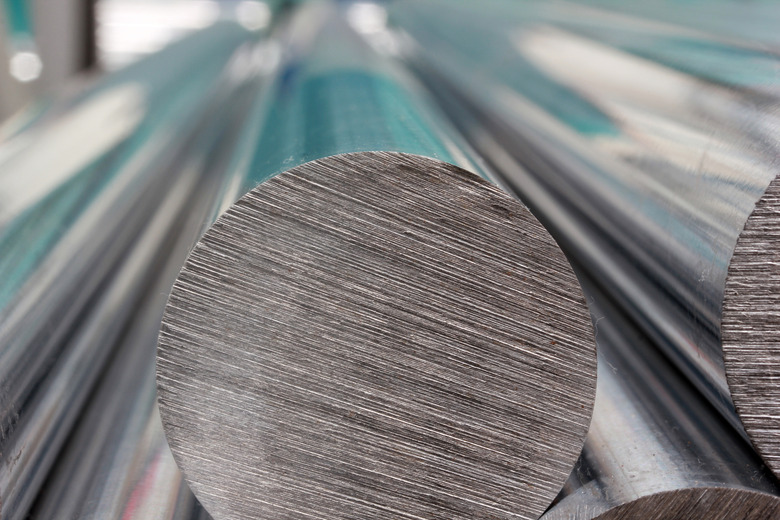Which Materials Carry Sound Waves Best?
Light materials carry sound vibrations better than dense, heavy objects. A material's elasticity or "springiness" is also important for transmitting sound: less elastic substances such as hard foams and paper are more likely to absorb sound than carry it. The best materials for carrying sound waves include some metals such as aluminum, and hard substances like diamond.
Speed of Sound Formula
Speed of Sound Formula
The formula for the speed of sound in different properties is crucial to understanding why certain properties carry sound better. The velocity of a sound wave is equal to the square root of the elastic property divided by the density of the object. In other words, the less dense an object is, the faster sound travels, and the more elastic it is, the faster sound travels. An object will therefore conduct sound slower if it is not very elastic and is very dense.
Sound in Aluminum
Sound in Aluminum
Sound travels at one of the fastest rates through aluminum, at 6,320 meters per second. This is because aluminum is not particularly dense–meaning that it has little mass in a given volume–and is extremely elastic and capable of changing shape easily. Note that a material's elasticity tends to fluctuate more than its density and is therefore considered more important for understanding the speed of sound through the given material.
Sound in Copper
Sound in Copper
The next-fastest speed for sound is 4,600 meters per second in copper. With its elasticity and thus ability to vibrate in place easily, sound travels through quickly. However, it is much more dense than aluminum, which explains why it is nearly two-thirds slower than aluminum.
Non-Solids
Non-Solids
Sound travels much slower though gas and liquids because the molecules in each are not as rigid as the ones in a solid, significantly decreasing the elasticity of each substance. At normal room temperature and pressure, the speed of sound is 343 meters per second, or about 20 times slower than in aluminum. One measurement that will affect speed is temperature — the hotter something is, the faster sound moves through it since it increases the speed of the molecules. For example, sound is 12 meters per second faster in 40 degrees Celsius than it is in 20 degrees Celsius.
Cite This Article
MLA
Allan, Stephen. "Which Materials Carry Sound Waves Best?" sciencing.com, https://www.sciencing.com/materials-carry-sound-waves-8342053/. 29 April 2018.
APA
Allan, Stephen. (2018, April 29). Which Materials Carry Sound Waves Best?. sciencing.com. Retrieved from https://www.sciencing.com/materials-carry-sound-waves-8342053/
Chicago
Allan, Stephen. Which Materials Carry Sound Waves Best? last modified March 24, 2022. https://www.sciencing.com/materials-carry-sound-waves-8342053/
